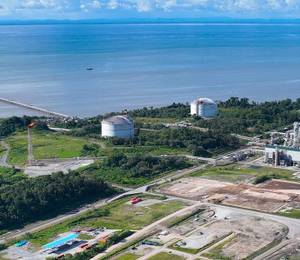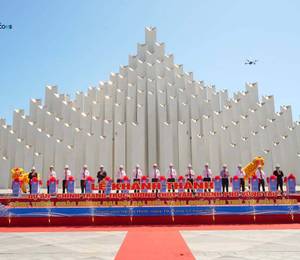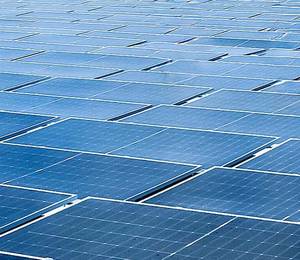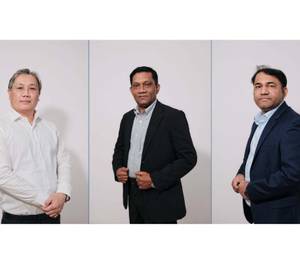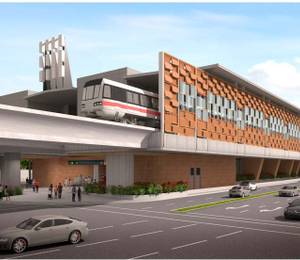Sembcorp Floating Solar Singapore, a wholly-owned subsidiary of Sembcorp Industries, and National Water Agency PUB, have officially opened the Sembcorp Tengeh Floating Solar Farm at the Tengeh Reservoir, Singapore. With 122,000 solar panels spanning across 45 ha (equivalent to about 45 football fields), the 60 MWp solar photovoltaic (PV) facility is one of the world’s largest inland floating solar PV systems.
The commencement of the solar farm’s operations marks a significant step towards enduring energy sustainability in water treatment, making Singapore one of the few countries in the world to have a 100% green waterworks system while contributing to the national goal of quadrupling solar energy deployment by 2025.
The electricity generated from the solar farm will be sufficient to power Singapore’s five local water treatment plants, offsetting about 7% of PUB’s annual energy needs and reducing PUB’s carbon footprint. This is equivalent to powering about 16,000 four-room HDB flats (Singapore’s public housing) and reducing carbon emissions by about 32 kt/yr, the same as taking 7,000 cars off the roads.
“With this floating solar power plant, which we believe to be one of the largest in the world, PUB takes a big step towards enduring energy sustainability in water treatment. Solar energy is plentiful, clean and green, and is key to reducing PUB’s and also Singapore’s carbon footprint,” said Joo Hee, chief executive of PUB.
Wong Kim Yin, group president and CEO of Sembcorp Industries added, “The Sembcorp Tengeh Floating Solar Farm is a crown jewel in our portfolio, and a showcase for Singapore. As the leading homegrown renewable energy player, Sembcorp has over 3,300 MW of renewable energy assets around the world. We are committed, and have the track record and competencies, to support the Singapore Green Plan.”
‘New engineering and construction technique’
Construction of the floating solar PV system commenced in August 2020. Designed, built, owned and operated by Sembcorp, the project was completed on time with full safe management measures in place, despite manpower and supply chain constraints due to the Covid-19 pandemic.
New and innovative ways of working were needed to mitigate the impact, and one such way was conceptualising and implementing a new engineering and construction technique to design a custom-built jig that increased the rate of solar panel assembly by up to 50%.
Partnering with Quantified Energy Labs, a technology spinoff from the National University of Singapore, this project is also said to be the first in the world to deploy advanced drone electroluminescence imaging technology on a utility-scale PV system.
Drone electroluminescence imaging captures X-ray-like signals emitted by PV modules to accurately and rapidly pinpoint defects that could be caused by a variety of factors from the manufacturing to installation stage. Identifying and replacing defective modules from the start has ensured that the PV system is running in optimal condition.
Ensuring water quality, mitigating environmental impact
PUB’s main concern with deploying solar panels on reservoirs was the potential impact on surrounding environment, biodiversity and water quality. A comprehensive Environmental Impact Study, which included biodiversity surveys, water quality monitoring and modelling, along with consultations with nature groups was carried out between 2015 and 2018.
Results from PUB’s testbed deployed at Tengeh Reservoir in 2016 showed no observable change in water quality nor significant impact on surrounding wildlife.
Referencing the Study, the Sembcorp Tengeh Floating Solar Farm was carefully designed to minimise impact on the reservoir’s water quality, flora and fauna. Sufficient gaps between solar panels were incorporated to improve the airflow and allow sufficient sunlight to reach aquatic life. Additional aerators were also put in place to maintain oxygen levels in the reservoir.
Floats deployed are made using high-density polyethylene (HDPE) – a certified food-grade material that is recyclable, UV-resistant and corrosion resistant. In addition to having a comprehensive environmental management and mitigation plan, PUB and Sembcorp will continue to monitor the reservoir closely, and take necessary measures to maintain biodiversity and water quality.
Photos: Sembcorp Industries




